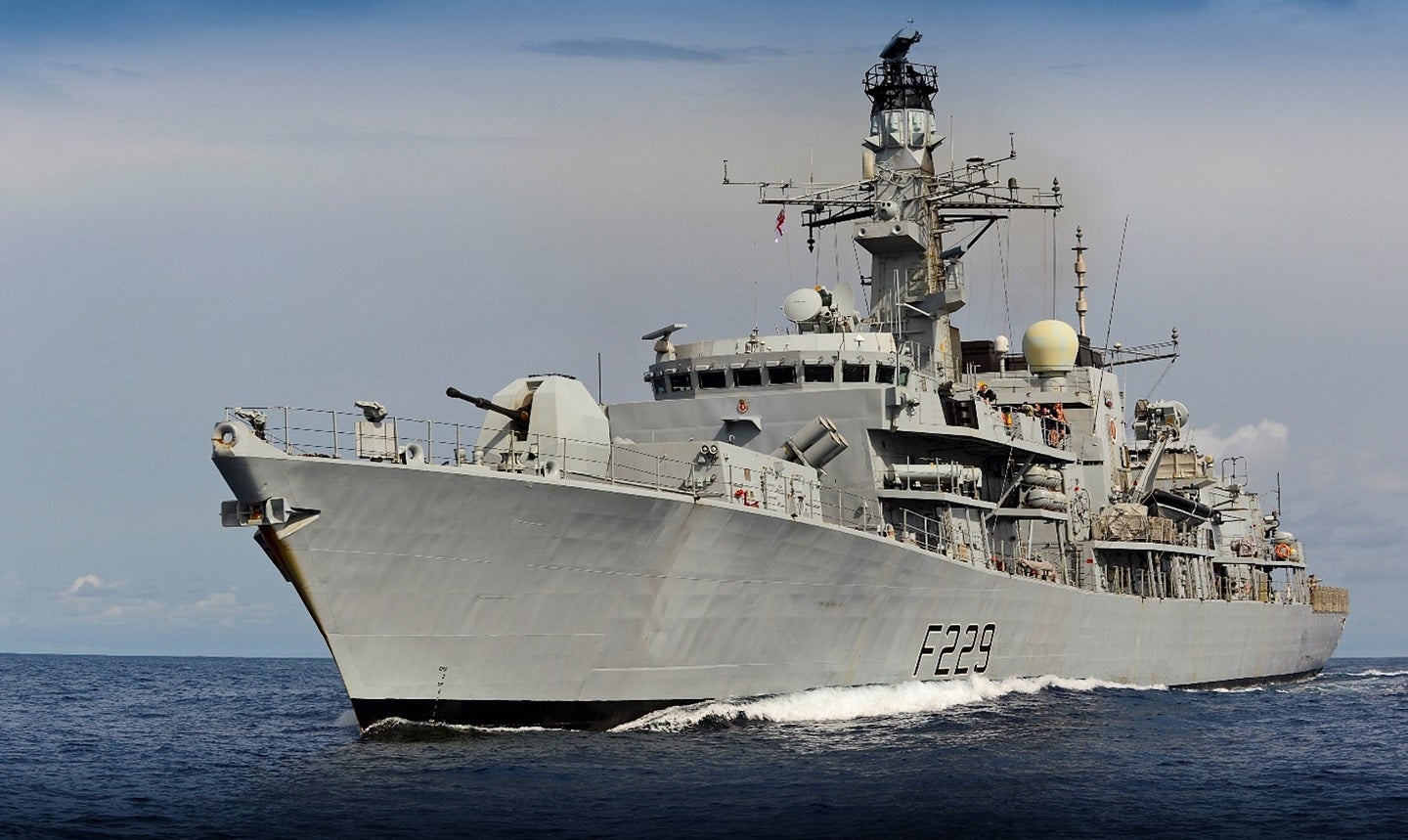The system will determine the optimal depth of an active sonar projector and receiving array as part of the Royal Navy Spearhead programme.
Systems Engineering & Assessment (SEA), a susbsidiary of Cohort, a British defence technology company, will provide a software application that will enhance the sonar systems used on UK Royal Navy warships, according to a company announcement on 16 April 2024.
Under the anti-submarine warfare (ASW) Spearhead programme – which the Ministry of Defence set up in October 2022 to rapidly leverage new underwater capabilities from industry – SEA offers a product that automatically determines the optimal depth of an active sonar projector and receiving array depending on the subsea environment.
This system is due to enter a trial phase later this year. SEA are firmly embedded in the Royal Navy supply chain, having already supplied its Ancilia trainable decoy launcher system, designed to mislead ballistic and hypersonic missiles with an alternative radar signature. The company has been contracted globally, with the Royal Canadian Navy ordering production of lightweight torpedo launcher systems.
SEA will not only demonstrate its software application but the supplier will also actively contribute additional concepts to ASW Spearhead, working with prime contractor Thales Underwater Systems.
Currently, the Royal Navy employs Thales’ CAPTAS-4, or Sonar 2087 system, which equips first-tier frigates such as the British Duke-class, or Type 23, as well as the European FREMM ships. It is a variable-depth, low-frequency transmitter and a passive, towed reception array.
S2087, which entered service in February 2006, has a greater range with bistatic and intercept capability.
Access the most comprehensive Company Profiles
on the market, powered by GlobalData. Save hours of research. Gain competitive edge.
We are confident about the
unique
quality of our Company Profiles. However, we want you to make the most
beneficial
decision for your business, so we offer a free sample that you can download by
submitting the below form
The system is operated from DRS Technologies OPUS2 multi-function consoles. HMS Westminster, HMS Northumberland, HMS Richmond, and HMS St Albans were fitted with the sonar.
“SEA is proud to be demonstrating its leading capability for this important project with Thales,” Ian Cox, head of research and simulation at SEA stated. “[It] is a continuation of our work with the Royal Navy based around trusted advice and consultancy, and the provision of leading technology.”
However, a £30m ($38.4m) contract was awarded to Ultra Sonar Systems in July 2023 to manufacture, trial and supply five Type 2150 hull-mounted sonars due to be installed on the Royal Navy’s future Type 26 frigates. This system will not phase out the 2087. Rather, the Navy will adopt the two systems with 2150 being deployed from the bow, while 2087 operates from the stern of the vessel.
Nonetheless, Thales’ US subsidiary, Advanced Acoustic Concepts, will provide the US Navy’s first few Constellation-class frigates – based on the FREMM model – with the S2087 sonar.
I consent to Verdict Media Limited collecting my details provided via this form in accordance with Privacy Policy
The leading site for news and procurement in the naval defence industry
